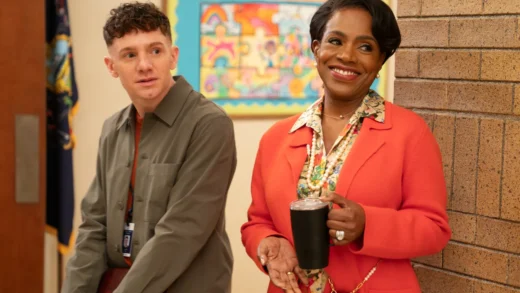
What does it take for a TV show to get an episode banned? Small screen standards have, of course, changed a lot over the years.
Long gone are the days when the merest wiggle of Elvis Presley’s hips was enough to send entire nations into an uproar over such filth polluting the minds of viewers everywhere. Nowadays, one would hope we’re all rather more rational and less prone to fits of moral panic – although, sadly, this doesn’t always seem to be the case.
More often than not, if a TV episode gets pulled, it’s over fears of it causing offence – which, we should note, isn’t necessarily the same as the episode itself being deemed truly offensive. Although that can happen.
On top of which, there are from time to time rare instances in which both the broadcasters and the audience may have a legitimate reason to believe that an episode’s content could cause real harm.
Even in recent years, when TV content has become more permissive than ever before, there are still odd occasions when individual episodes are pulled off the air, and some of the most popular shows in recent memory have fallen afoul of the censor here and there.[/nextpage][nextpage]
10. Man’s Best Friend (1992) – Ren And Stimpy
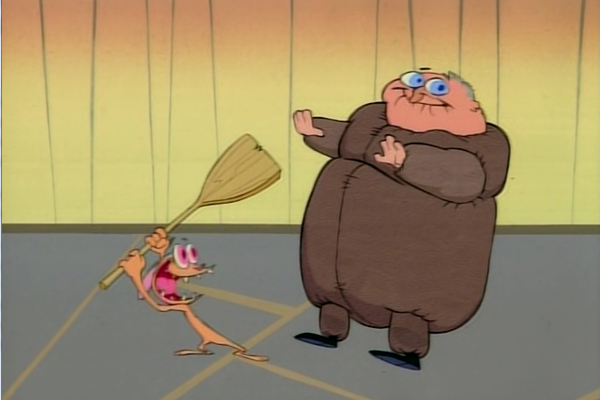
[the_ad id=”7641″]
Ren and Stimpy is but one of a number of animated TV shows that’s synonymous with word ‘controversy.’
The 1990s cartoon was one of the flagship shows of newly introduced kids channel Nickelodeon, along with the noticeably milder Rugrats and Doug. However, with its hyper-surreal, confrontational style and disturbingly dark humour, questions were asked from the beginning as to whether Ren and Stimpy was suitable – or, indeed, even intended – for a pre-teen audience.
Yet despite anxieties from both outraged parents and network executives, no episodes of Ren and Stimpy were banned outright until season 2’s Man’s Best Friend. This episode sees unhinged military man George Liquor adopt the cat and chihuahua, and subject them to increasingly unnerving psychological torture in the name of discipline.
Nickelodeon refused to air Man’s Best Friend on grounds of excessive violence, mostly due to the climax in which Ren viciously beats up his master with a wooden oar. Shots of a goldfish smoking a cigarette, plus some fairly gross poo jokes, probably didn’t help matters.
The episode is widely taken to be the key reason the original creative team behind Ren and Stimpy was replaced after season 2. Ultimately it wasn’t broadcast on American television until 2003.
[/nextpage][nextpage]
9. Home (1996) – The X-Files
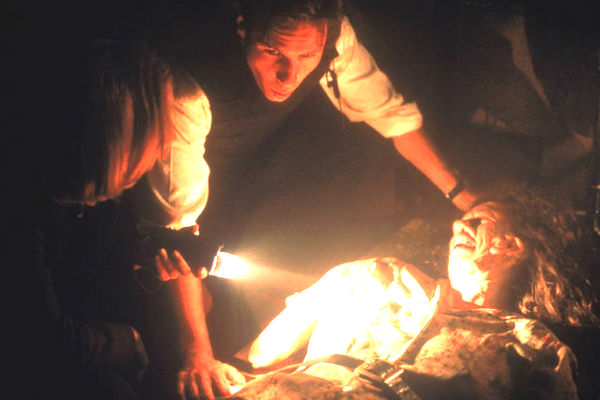
[the_ad id=”7641″]
Today, when the likes of Game of Thrones and The Walking Dead have made graphic sex, violence and swearing commonplace on the small screen, it’s easy to forget now just how much of an impact The X-Files made on arrival in the early 1990s.
The conspiracy-fuelled sci-fi series really pushed the envelope for TV horror at the time, sometimes running into difficulties with broadcasters around the world. Even so, network Fox stood by the show as things got ever darker and weirder.
However, season 4 episode Home was widely regarded to be the point where The X-Files finally went that bit too far.
A grim backwoods horror tale in the vein of The Texas Chain Saw Massacre and The Hills Have Eyes, the 1996 episode sees Mulder and Scully sent in to investigate when the corpse of a newborn baby is discovered by children. The FBI agents ultimately discover this is just the latest abandoned child of a feral family which has been inbreeding for decades.
Although Home was originally broadcast with a viewer discretion warning and a TV-MA rating (a first for The X-Files), its content was considered so extreme and unpleasant that Fox chose to withdraw it from future re-runs.
[/nextpage][nextpage]
8. Electric Soldier Porygon (1997) – Pokémon
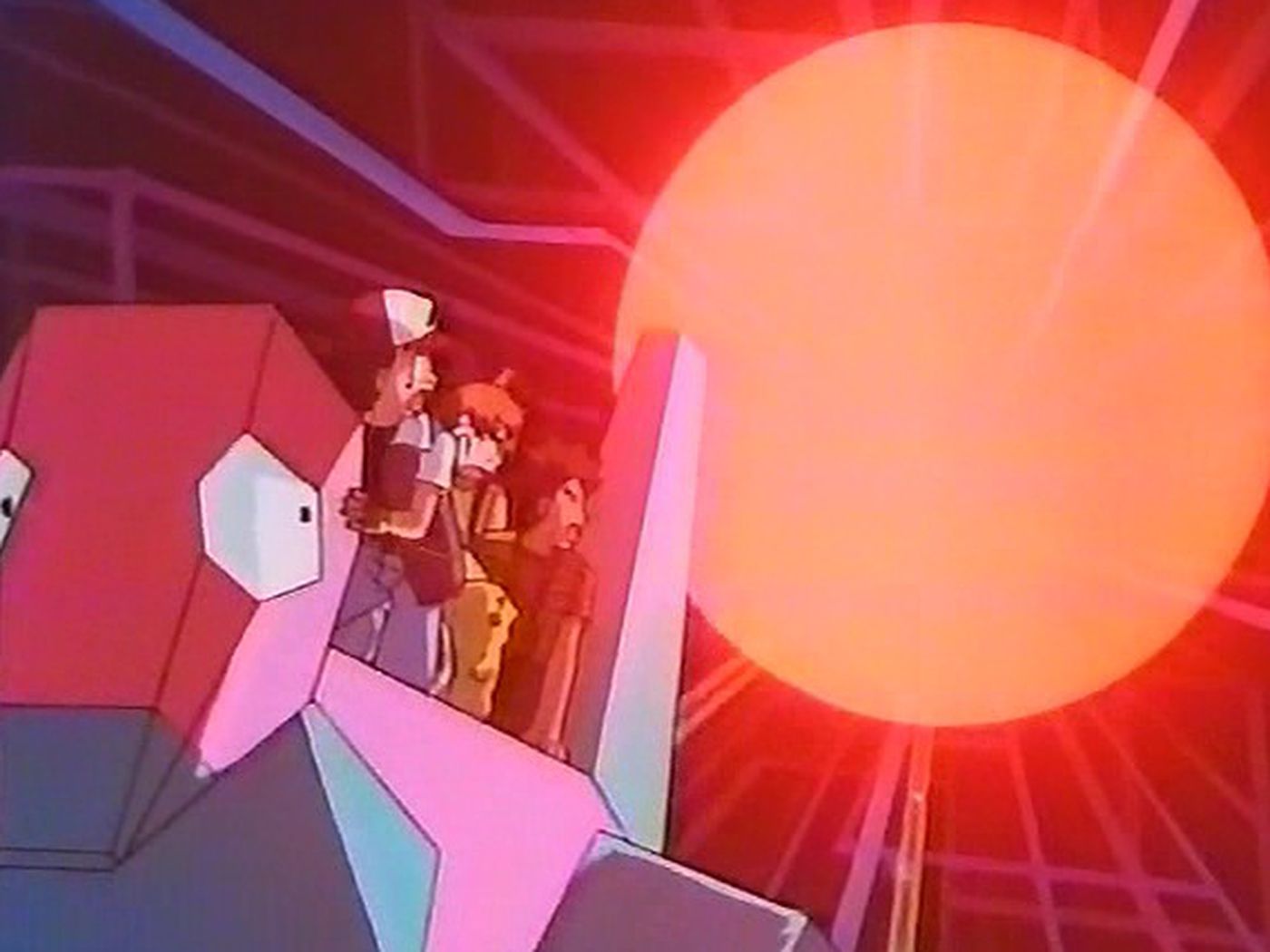
[the_ad id=”7641″]
Since its introduction in 1997, anime series Pokémon has become an enduring cultural sensation whose popularity shows no sign of fading more than 20 years on. Itself an offshoot of the Nintendo game series, the cartoon’s astonishing longevity (1004 episodes to date) has helped keep the franchise beloved worldwide.
However, back in its earliest days Pokémon faced some controversy which might easily have derailed the whole enterprise.
The show’s 38th episode, Electric Soldier Porygon, was broadcast for the first and last time on Japanese television in December 1997. The show was already renowned for its flashy visuals, but this episode took things even further, with dangerous results.
The use of repetitive multicoloured strobe lighting effects triggered adverse reactions in hundreds of viewers, young and old, across Japan. There were widespread reports of epileptic fits, seizures, blindness, nausea, convulsions and loss of consciousness, and a reported 685 children were rushed to hospital in ambulances, two of whom remained hospitalised for over a fortnight.
The resultant public outcry saw Pokémon taken off the air for several months afterwards, and Japanese television soon introduced new regulations to avoid such disasters in the future. Unsurprisingly, Electric Soldier Porygon has never been aired again on TV anywhere.
[/nextpage][nextpage]
7. The Puerto Rican Day (1998) – Seinfeld
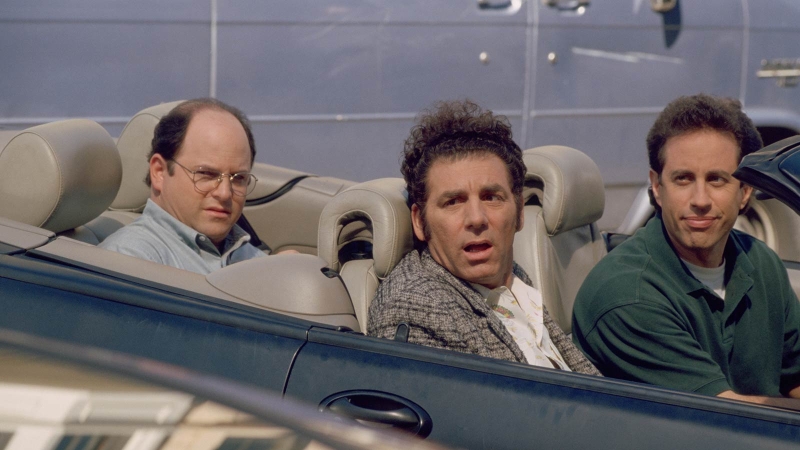
[the_ad id=”7641″]
Plenty of people will tell you Seinfeld was the best sitcom of the 1990s. Others will say it was the best sitcom ever. Others will say it was the single greatest TV show of all time. You get the point: the virtually plotless New York-based comedy, centred on the mundane lives of four friends, is a televisual work which tends to inspire strong reactions.
However, 1998’s The Puerto Rican Day proved to inspire reactions that got a bit too heated. The season 9 episode sees central characters Jerry, Elaine, George and Kramer in a car stuck in traffic, held up by the Puerto Rican Day parade.
Seinfeld typically steered clear of racial humour, but this particular episode dipped its toe in those treacherous waters, with Michael Richards’ Kramer making some remarks that were deemed racist, and – most provocatively – accidentally setting a Puerto Rican flag on fire, then stamping on it in a bid to get the flames out.
The episode prompted a slew of complaints and protests outside network NBC’s headquarters. Subsequently, it was pulled from the rerun cycle, although in the years since it has returned to syndication and been made available in the DVD box set.
(Excerpt) Read More at: WhatCulture.com
[/nextpage]

